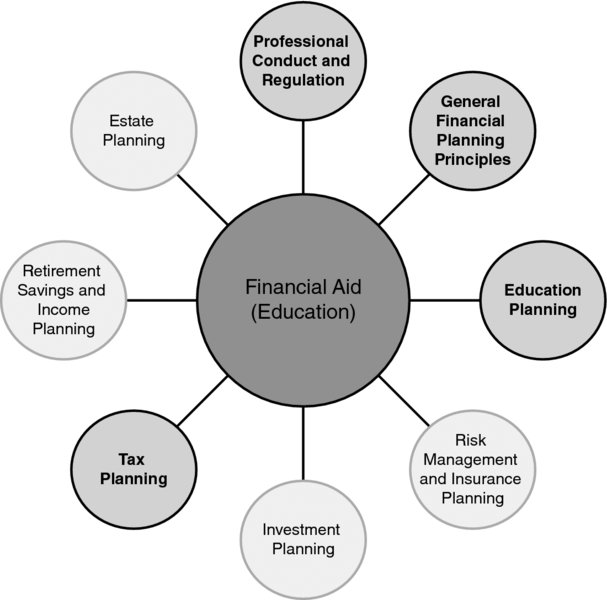CHAPTER 17 Financial Aid (Education)
Martie Gillen, PhD
University of Florida
Michael Gutter, PhD
University of Florida
CONNECTIONS DIAGRAM

For many families, financial aid, both need-based and merit-based, is an important component of education planning. According to the U.S. Department of Education, the majority of full-time undergraduate students receive some type of financial aid. Financial aid may come from the U.S. government, the state of residence, the college, or a non-profit or private organization. Federal financial aid programs are authorized under Title IV of the Higher Education Act of 1965. Financial aid may include grants, loans, and work study programs. A financial planner can help clients evaluate the availability of and qualifications for various forms of financial aid. The eligibility for such aid would be dependent on the Expected Family Contribution as determined by the Free Application for Federal Student Aid (FAFSA) process. The financial planner must adhere to ethical standards of professional conduct and fiduciary responsibility.
INTRODUCTION
Completion of the Free Application for Federal Student Aid (FAFSA) form begins the financial aid application process. Since parental assets and income count differently than those of a child, a financial planner should be aware of how the Expected Family Contribution is determined. The Expected Family Contribution ...
Get Financial Planning Competency Handbook, 2nd Edition now with the O’Reilly learning platform.
O’Reilly members experience books, live events, courses curated by job role, and more from O’Reilly and nearly 200 top publishers.

